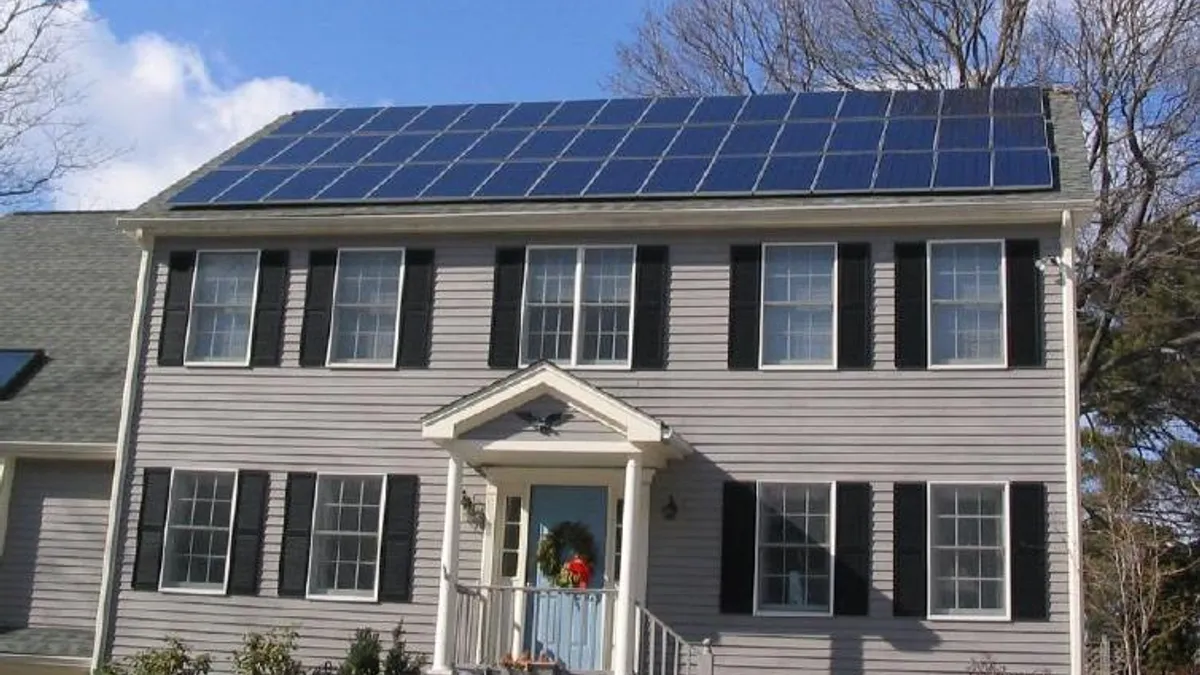Dive Brief:
- Senate Bill 1189, a bill designed to boost solar in South Carolina, went to the state Senate floor Tuesday with new amendments written to affirm protections for rooftop solar leasing businesses. A source close to the process said a vote is expected after the Easter break next week.
- After the bill passed out of the Senate Judiciary Committee by a 19-1 vote in early April, it was met with protest from The Alliance for Solar Choice (TASC), a group primarily representing national rooftop solar installers that work on the third party ownership (TPO) business model that has driven a boom in solar wherever it has been available.
- As result, two new amendments were added with the approval the coalition of local conservationists, solar businesses, electric utilities, including Duke Energy and Santee Cooper, and 22 electric cooperatives.
- A key bill provision creates new regulatory parameters that allow third party ownership of solar in the state. TASC argued it would undermine solar growth because it gives utilities monopoly-like control of third-party rooftop solar installation by allowing them to rate-base the leasing charges.
- The local coalition said the bill would require utilities to conduct their leasing programs “along the lines of how it would work for private companies,” South Carolina Coastal Conservation League Energy/Climate Director Hamilton Davis said. But they agreed to the clarifying amendments and understand that TASC is now satisfied with the protections.
Dive Insight:
The TPO leasing model has driven a solar growth in states where is has been available because it eliminates high upfront costs for solar for home and business owners.
Other bill provisions define the solar installation approval process and allow for an increased NEM cap, following a PUC study to determine the value of solar in the state.
With this legislation, Southern Environmental Law Center Solar Initiative attorney Katie Ottenweller said last week, “the state's solar market can and will grow rapidly.”
“If it becomes law, this state can become the national model for how solar growth can be successful and fair,” Duke Energy spokesperson Ryan Mosier agreed.













